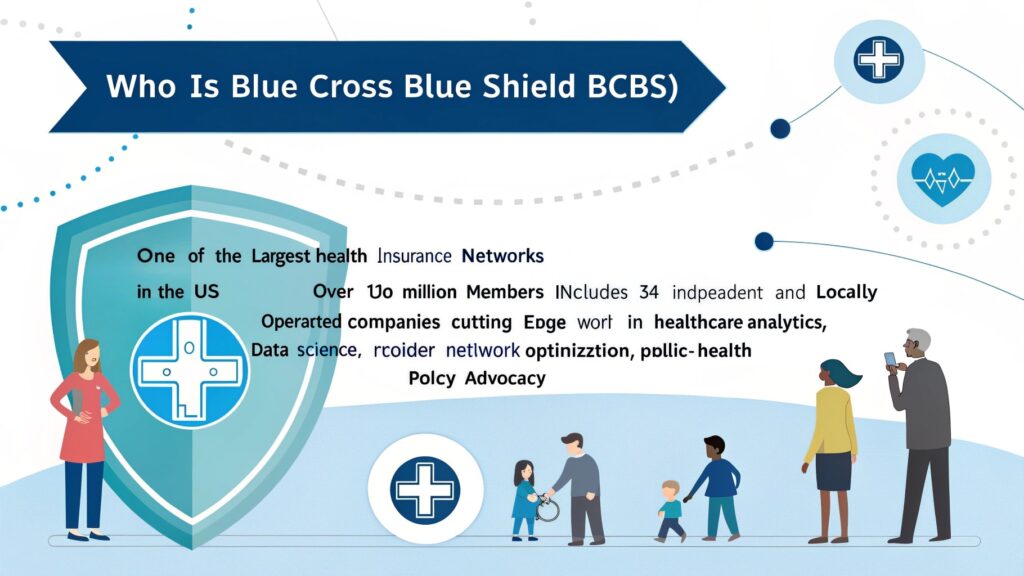In today’s healthcare environment, data plays a vital role in improving patient outcomes, managing costs, and ensuring regulatory compliance. Among the key players leading this transformation are health insurance giants like Blue Cross Blue Shield (BCBS). Within BCBS, roles such as the R-45583 Provider Data Reporting Intern offer a unique opportunity to work at the intersection of healthcare and data analytics. This article explores everything you need to know about the R-45583 Provider Data Reporting Intern at BCBS—from the responsibilities and qualifications to the broader impact of this internship on a healthcare data career.
Understanding the Internship Code: What Does R-45583 Mean?
The code R-45583 is an internal job requisition number used by Blue Cross Blue Shield (BCBS) to identify a specific internship opening. Each job posting typically comes with a unique reference code that allows applicants, recruiters, and internal HR departments to track the position throughout the application and hiring process.
While the number itself may not reveal job details on its own, it helps applicants quickly locate the specific posting—”Provider Data Reporting Intern”—on BCBS’s careers page or other job boards like Indeed, LinkedIn, or Handshake.
Who Is Blue Cross Blue Shield (BCBS)?

Blue Cross Blue Shield is one of the largest and most trusted health insurance networks in the United States. With over 100 million members across the country, BCBS includes 34 independent and locally operated companies. They offer coverage to individuals, families, employers, and Medicare and Medicaid beneficiaries.
The organization is known not just for health insurance but also for its cutting-edge work in healthcare analytics, data science, provider network optimization, and public health policy advocacy.
What Is the Provider Data Reporting Intern Role?
The Provider Data Reporting Intern (R-45583) is typically part of the Provider Data Management (PDM) or Network Analytics team. Interns in this role help ensure that provider data—such as physician names, specialties, credentials, addresses, and affiliations—are accurately collected, maintained, and reported across systems.
This data is crucial because it directly affects:
- Provider directories (used by patients and members)
- Claims processing
- Regulatory compliance
- Network performance reporting
- Member satisfaction
As a Provider Data Reporting Intern, you’ll work on compiling, analyzing, validating, and reporting provider-related data.
Key Responsibilities of the R-45583 Provider Data Reporting Intern
The specific duties may vary depending on the team and location, but typically include:
1. Data Extraction and Validation
Interns help extract provider data from multiple sources and ensure its accuracy. This includes checking for:
- Duplicate entries
- Credential mismatches
- Inaccurate addresses
- Incomplete records
2. Reporting and Analytics
Interns support the team in creating dashboards, reports, and data visualizations to help leadership understand provider network performance and compliance metrics.
Common tools used include:
- Microsoft Excel
- Power BI
- SQL
- Python or R (depending on the team)
3. Data Cleaning and Transformation
You may be tasked with cleaning raw provider data, removing inconsistencies, and transforming it into standardized formats for use in analytics platforms.
4. Cross-functional Collaboration
Interns often work with multiple teams:
- Provider Relations
- Compliance
- IT and Data Engineering
- Quality Improvement
- Member Services
This helps interns understand the broader ecosystem of healthcare operations.
5. Process Improvement
You might be encouraged to offer suggestions for improving current data workflows, especially if you notice inefficiencies or redundancies.
Also read: CryptoWeeks Bloomberg
Skills and Qualifications Needed
To qualify for the R-45583 Provider Data Reporting Intern BCBS role, applicants are usually expected to have the following skills and background:
Education
- Pursuing a Bachelor’s or Master’s degree in:
- Data Analytics
- Health Informatics
- Public Health
- Business Administration
- Computer Science
- Statistics
- Data Analytics
Technical Skills
- Proficiency in Excel (pivot tables, VLOOKUP, formulas)
- Basic knowledge of SQL
- Experience with data visualization tools (Power BI, Tableau)
- Exposure to programming languages like Python or R (not always required but a plus)
Soft Skills
- Strong attention to detail
- Analytical mindset
- Problem-solving ability
- Communication and teamwork
- Time management
Benefits of Doing a Provider Data Reporting Internship at BCBS
Taking on a role like R-45583 Provider Data Reporting Intern offers multiple benefits, both in terms of career and professional development:

1. Hands-On Industry Experience
You gain firsthand exposure to how healthcare data is collected, managed, and used in a real-world setting.
2. Resume Builder
A BCBS internship is a strong addition to any resume, especially if you’re targeting roles in healthcare analytics, health informatics, or data science.
3. Learning From Experts
You’ll get to work alongside professionals in healthcare administration, data analytics, and IT, expanding both your technical and domain knowledge.
4. Potential Full-Time Opportunities
High-performing interns are often considered for full-time roles after graduation. Many BCBS companies offer rotational analyst programs for recent grads.
5. Networking
Interns attend meetings, presentations, and training sessions—building valuable connections within the healthcare industry.
A Typical Day in the Life of a Provider Data Reporting Intern
Let’s walk through a fictional but realistic workday for the R-45583 Provider Data Reporting Intern at BCBS:
| Time | Activity |
| 9:00 AM | Log in and check emails from the Provider Data Team |
| 9:30 AM | Review updated provider files from the credentialing department |
| 10:00 AM | Attend virtual team stand-up meeting |
| 11:00 AM | Use Excel to clean and validate newly received provider lists |
| 12:00 PM | Lunch |
| 1:00 PM | Meet with the Data Analytics team to discuss report design |
| 2:30 PM | Update dashboard in Power BI to reflect new metrics |
| 3:30 PM | Document process steps for onboarding new provider data |
| 4:30 PM | End-of-day check-in with your supervisor |
How to Apply for the R-45583 Provider Data Reporting Intern BCBS Role
Step 1: Visit the BCBS Careers Portal
Go to the official careers site of your local BCBS provider (e.g., bcbs.com, anthem.com, horizonblue.com).
Step 2: Use the Job Code “R-45583”
Search using the job ID R-45583 to find the exact internship posting. Make sure the job location and dates align with your availability.
Step 3: Submit a Tailored Resume and Cover Letter
Highlight your:
- Technical and analytical skills
- Education in healthcare or data
- Interest in healthcare innovation
Step 4: Prepare for Interviews
You may face behavioral and technical interview rounds, including:
- Situational questions
- SQL or Excel test
- Questions about your approach to problem-solving or data quality
Also read: Sztavrosz
Growth Opportunities After the Internship
If you’re thinking long term, here are potential career paths after completing this internship:
| Role | Description |
| Data Analyst | Analyze claims, member, or provider data to uncover trends |
| Provider Network Analyst | Monitor provider performance and network adequacy |
| Healthcare Business Analyst | Improve operational processes using data |
| Health Informatics Specialist | Use tech and data science to enhance care delivery |
| Compliance Analyst | Ensure data meets HIPAA and state/federal regulations |
Why Healthcare Data Internships Are In Demand
The healthcare industry is undergoing a major digital transformation. Internships like R-45583 are part of a growing effort to develop data-savvy professionals who can help providers, payers, and policymakers make informed decisions.
By 2030, healthcare data volume is expected to grow at an exponential rate. Accurate provider data helps reduce medical errors, improve access, and boost patient satisfaction. Interns in this space are playing a crucial role in building the infrastructure that powers tomorrow’s healthcare.
Frequently Asked Questions
1. What does the job code R-45583 stand for?
It is an internal reference number used by BCBS to identify the Provider Data Reporting Intern role. It helps applicants find the exact position online.
2. Is this internship paid?
Yes, BCBS typically offers paid internships, although compensation may vary by location and business unit.
3. What tools should I know before applying?
Familiarity with Excel, SQL, and Power BI or Tableau is highly recommended. Basic programming skills in Python or R are a plus.
4. How long does the internship last?
Most internships are 10-12 weeks during summer, but some may extend into fall or spring semesters.
5. Can international students apply?
This depends on the specific BCBS company and whether they sponsor interns. Check the job posting for eligibility requirements.
6. What kind of training is provided?
Interns typically receive onboarding, software tutorials, data handling protocols, and access to mentorship and guidance.
7. Where is the internship located?
Many roles are remote or hybrid. Some may be based in BCBS regional offices depending on business needs.
8. What departments will I work with?
Provider Data interns may collaborate with provider services, analytics, compliance, and IT teams.
9. What does provider data mean?
It refers to information about doctors, hospitals, clinics, and other healthcare providers within the BCBS network.
10. Is there a chance of full-time employment after the internship?
Yes, many interns are offered analyst or associate-level roles based on performance and team needs.
Conclusion:
The R-45583 Provider Data Reporting Intern role at BCBS offers a valuable opportunity to gain real-world experience in healthcare data analytics. It’s ideal for students looking to build a career in health informatics, data reporting, or provider network management. With hands-on learning, professional mentorship, and exposure to meaningful projects, this internship sets the stage for a strong future in the evolving world of healthcare data.
Related post:













